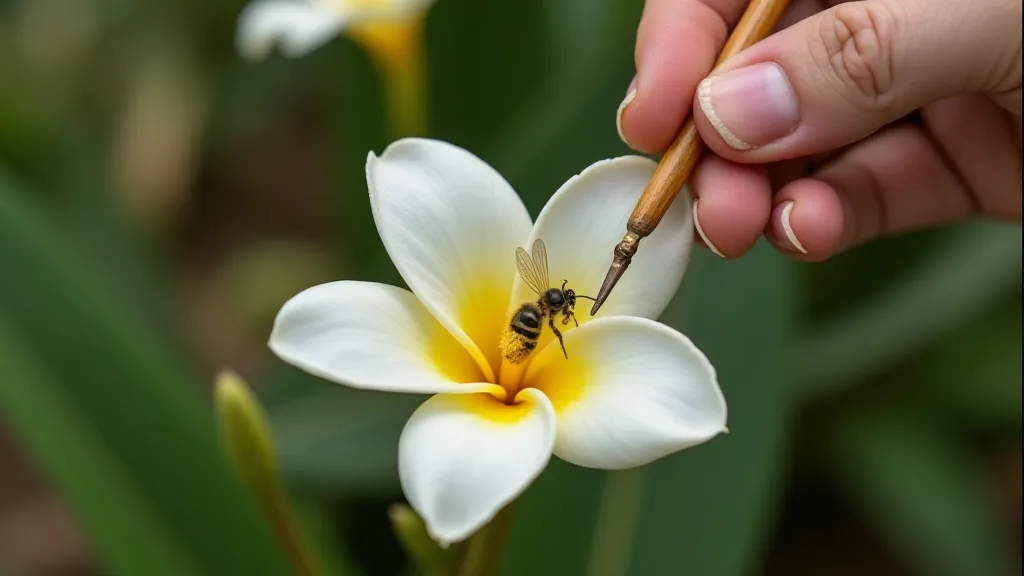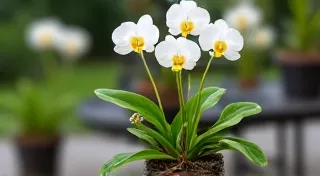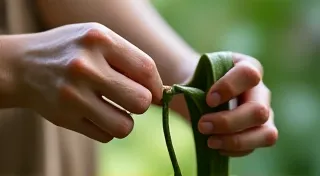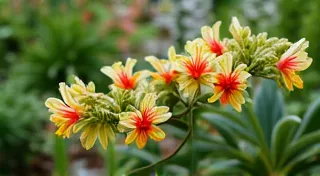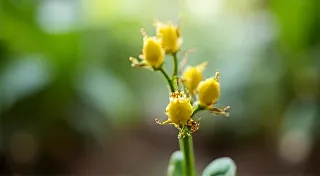Understanding Vanilla Bean Varieties: Which One Thrives in Your Home?
The fragrant allure of vanilla beans has captivated cooks and enthusiasts for centuries. But did you know that "vanilla" isn't just one singular type? The vanilla we enjoy comes from a few distinct varieties, each with unique flavor profiles, growth habits, and specific care requirements. Successfully growing vanilla beans at home is challenging enough, but choosing the right variety for your climate and growing conditions is a crucial first step. This guide explores the most popular vanilla bean varieties – Madagascar Bourbon, Tahitian, Mexican, and Ugandan – to help you determine which one is best suited to your home garden.
A Bit About Vanilla: The Basics
Before we dive into the varieties, let's briefly recap what makes vanilla so special. Vanilla beans are the seed pods of Vanilla planifolia and Vanilla tahitensis orchids, members of the tropical plant family Orchidaceae. These vines are epiphytes, meaning they grow on other plants for support, but they don’t parasitize them. They require warm temperatures, high humidity, bright, filtered light, and a specific pollination process (historically achieved by hand) to produce those coveted fragrant pods.
It's important to note that all commercially viable vanilla is grown in tropical climates, but with some dedication and careful management, it’s increasingly possible to cultivate them in protected home environments, like greenhouses or sunrooms, even outside of these ideal zones.
1. Madagascar Bourbon Vanilla (Vanilla planifolia ‘Bourbon’): The Classic Choice
Madagascar Bourbon vanilla is arguably the most well-known and widely cultivated variety globally, accounting for a significant portion of the world’s vanilla production. The name “Bourbon” is a historical misnomer; it doesn’t originate from Bourbon (modern-day France) but was named after the French island of Île Bourbon (now Réunion), where it was first cultivated from plants brought from Mexico.
Flavor Profile: Bourbon vanilla is known for its rich, creamy, full-bodied flavor. It boasts complex notes of chocolate, caramel, and spice – a truly classic vanilla taste.
Growth Habits: Bourbon vanilla vines are vigorous growers, capable of reaching impressive lengths (up to 30 feet). They prefer well-draining, slightly acidic soil and require consistent moisture.
Care Requirements:
- Light: Bright, filtered light. Direct sunlight can scorch the leaves.
- Humidity: High humidity (70% or higher) is essential. Regular misting or a humidifier are often necessary.
- Temperature: Warm temperatures (ideally between 70-85°F / 21-29°C).
- Pollination: Manual pollination is almost always required for home growers.
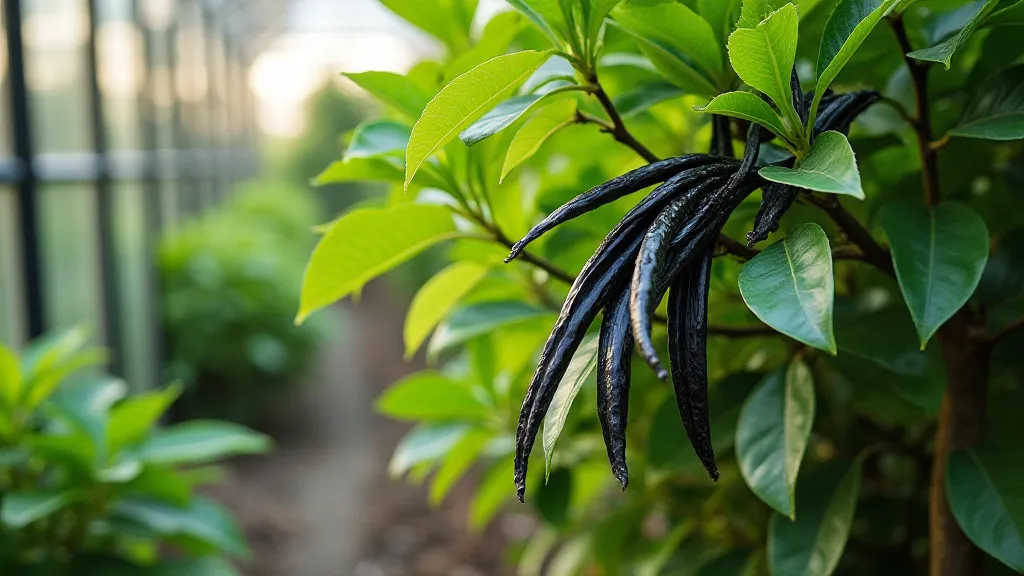
2. Tahitian Vanilla (Vanilla tahitensis): The Fragrant Delight
Tahitian vanilla originates from the islands of French Polynesia. Unlike Bourbon vanilla, which has a classic vanilla flavor, Tahitian vanilla is prized for its floral aroma and fruity flavor profile.
Flavor Profile: Tahitian vanilla’s flavor is often described as floral, fruity (often with hints of cherry or citrus), and less "vanilla-like" than Bourbon. It lacks the classic "vanilla" taste but offers a unique and aromatic experience.
Growth Habits: Tahitian vanilla vines are generally less vigorous than Bourbon varieties but can still reach considerable lengths. They are also considered slightly more tolerant of shade.
Care Requirements:
- Light: Bright, filtered light. Can tolerate slightly more shade than Bourbon.
- Humidity: High humidity (70% or higher).
- Temperature: Warm temperatures (ideally between 70-85°F / 21-29°C).
- Pollination: Manual pollination is absolutely necessary.
Important Note: Tahitian vanilla is more sensitive to cold temperatures than Bourbon vanilla. Careful temperature monitoring is crucial.
3. Mexican Vanilla (Vanilla mexicana): The Original
Mexican vanilla is the original home of the Vanilla planifolia species. While historically significant, it's less common in commercial cultivation today. It's often difficult to find as a starting plant.
Flavor Profile: Mexican vanilla has a complex and intense aroma, often described as spicy and balsamic. The flavor can be quite pungent compared to Bourbon or Tahitian.
Growth Habits: Mexican vanilla vines are vigorous and robust, mirroring the growth patterns of Bourbon.
Care Requirements: The care requirements are similar to Bourbon vanilla:
- Light: Bright, filtered light.
- Humidity: High humidity (70% or higher).
- Temperature: Warm temperatures (ideally between 70-85°F / 21-29°C).
- Pollination: Manual pollination is a must.
Challenges: Obtaining a healthy starter plant can be difficult, and the intense aroma can be overpowering for some.
4. Ugandan Vanilla (Vanilla planifolia ‘Uganda’): A Rising Star
Ugandan vanilla is a relatively newer variety gaining recognition for its robust growth and distinctive flavor. It is increasingly cultivated in Uganda, East Africa.
Flavor Profile: Ugandan vanilla offers a flavor profile somewhere between Madagascar Bourbon and Mexican vanilla. It’s rich and creamy like Bourbon but with a slightly more spicy and earthy undertone.
Growth Habits: Ugandan vanilla vines are known for their vigorous growth and often produce a higher yield compared to other varieties.
Care Requirements:
- Light: Bright, filtered light.
- Humidity: High humidity (70% or higher).
- Temperature: Warm temperatures (ideally between 70-85°F / 21-29°C).
- Pollination: Manual pollination is essential.
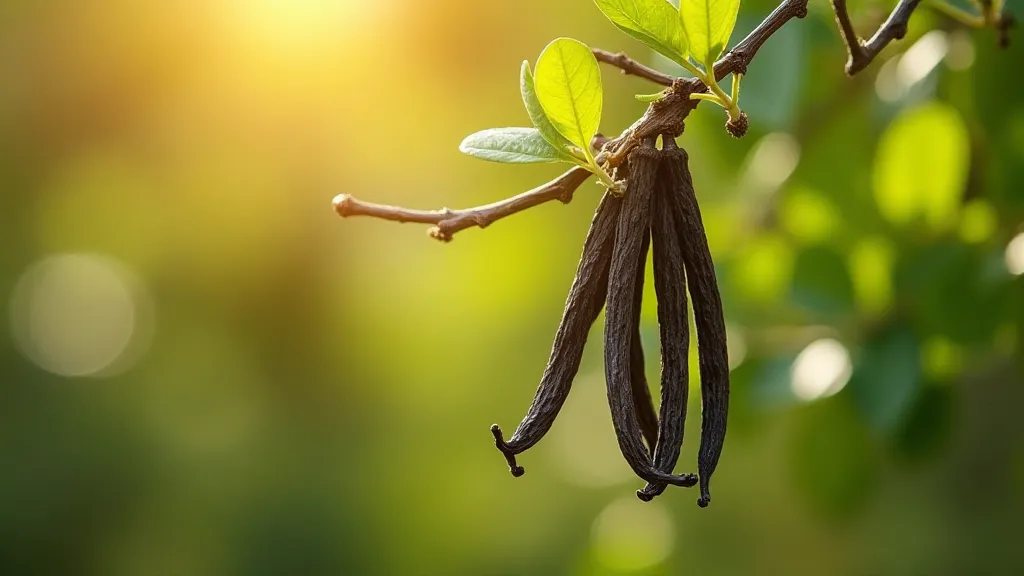
Choosing the Right Variety for Your Home
Ultimately, the best vanilla bean variety for your home depends on several factors:
- Climate: Consider your local climate and the range of temperatures you can realistically maintain. Tahitian is more sensitive to cold.
- Space: All vanilla varieties require considerable space to grow, both horizontally and vertically.
- Flavor Preference: Do you prefer the classic "vanilla" flavor of Bourbon, the floral notes of Tahitian, or something more exotic?
- Availability: The availability of starter plants can vary greatly depending on your location.
Growing vanilla beans at home is a challenging but rewarding endeavor. With careful planning, dedication, and the right variety, you can enjoy the unparalleled pleasure of harvesting your own fragrant vanilla beans.
